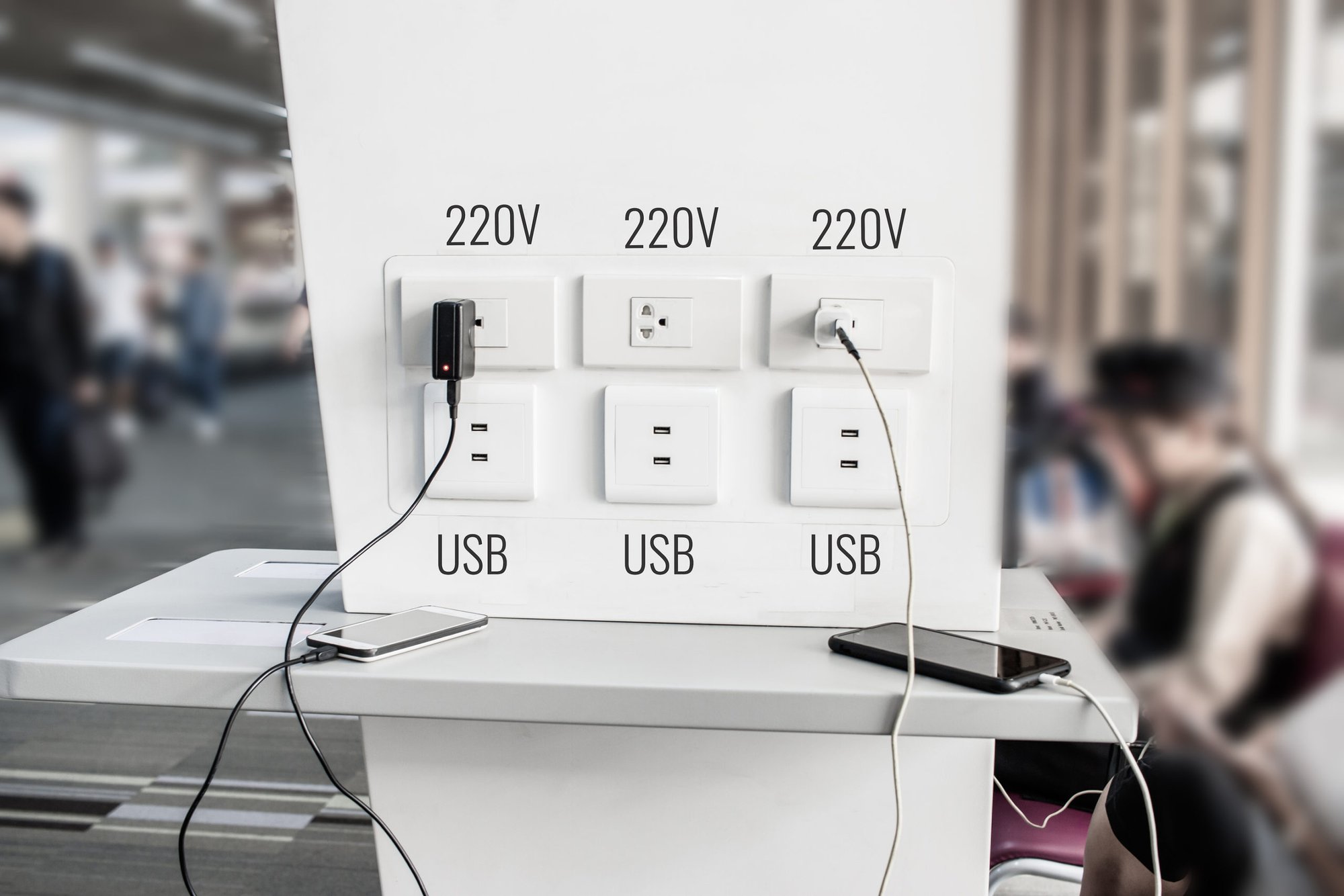Why does the FBI advise users not to charge their phones in public places like airports and hotels?
- Tram Ho
The US Federal Bureau of Investigation (FBI) recently warned users not to use free charging stations in public places like airports. Accordingly, the warning issued by the FBI is based on concerns that crooks may seek to hijack public charging stations, thereby infecting malicious software or ‘backdoor’ software that allows information hackers gain access to a user’s phone, tablet or computer. This method is named “juice jacking”.
” Avoid using free charging stations at airports, hotels or shopping malls ,” a tweet from the FBI’s Denver office said. “The bad guys have found a way to take advantage of public USB ports to inject malware and surveillance into devices. Bring your own charger and USB cord and use a power outlet.”

Free charging stations in public places have many potential security risks, in the context that the methods of stealing user data by hackers are becoming more and more sophisticated. Photo: Internet
The FBI puts out similar guidelines on its website to warn users not to charge their phones in public. However, the agency did not provide evidence of cases where users were affected by the “juice jacking” method.
With smart devices becoming more and more popular, charging points for phones, charging electronic devices and wifi hotspots are arranged in many public places such as airports, airplanes, meeting centers, etc. conventions and parks.
However, according to a survey by security company Authentic8, about 80% of people use public charging ports without bothering about whether using this charging port ensures information security or not.
According to Authentic8 expert Drew Paik, if electronic devices ‘accidentally’ plugged into a public USB port have been captured by hackers, all user information, from messages, photos, contact information to accounts Accounts and passwords may be stolen.
“Plugging your phone into a USB port at a public charging station is like seeing a toothbrush by the roadside and deciding to put it in your mouth. You never know what that toothbrush has been through, like the other USB port. Remember one thing, the USB port at the charging station can transfer data,” IBM expert Caleb Barlow said.
In fact, as early as 2021, the US Federal Trade Commission (FTC) has warned that charging phones or electronic devices at public charging points poses a risk of hacking and information theft. great personal information.
In addition to charging ports in public places, the charging cable itself for phones and electronic devices also contains a security risk. In 2022, many users were bewildered by information about the appearance of a standard lighting charging cable that could allow hackers to break into your computer.
Accordingly, this cable has been redesigned by implicitly integrating internal chips, helping hackers remotely connect to computers. Dubbed the O.MG cable, the charging cable looks like a real lightning cable.
” It’s a cable that looks identical to other cables you already have ,” explains MG, the creator of this charging cable. “But inside each cable, I implanted a device capable of connecting to a server, communicating via USB, and accessing the Internet via Wi-Fi. So just plug it in, power it on, and you’re done. can connect to it .”
This feature already exists in ‘original’ lighting cables, but this cable comes with extended network access, making it capable of two-way communication over the internet — listening for commands coming from the server controlled by the hacker and sends data from any device connected to the attacker.
Synthetic
Nguồn bài viết : Genk
